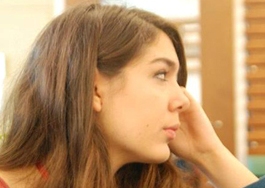This past week, due to a misunderstanding, I was involved in a fight with a really close friend of mine. Blinded by the fact that school had started and my responsibilities doubled, I was deeply frustrated over this misunderstanding. That is why I've decided to dedicate this piece to anyone who feels like they've lost their way over issues that are insignificant in life. Whenever I'm upset about the smallest things, I always recall an experience of mine that has affected me tremendously and literally shaped the identity that I own today. Sometimes stories like this have the power to overshadow all of the tiny problems we are faced with daily.
Approximately three years ago, I was enrolled in a program in my high school that required a certain amount of volunteer work to be completed. With our coordinator, about 20 of us traveled to a small village near Antalya for four days. For those of you who have been to Antalya, I advise you to erase all of the notions you have about the place, because while İmecik -- the village -- may be geographically close, it's nowhere near Antalya in terms of its structure, its people and simply its way of living. On my way to İmecik I was pretty excited about the journey; after all, who wouldn't like the idea of helping people in need? Little did I know that the villagers of İmecik would be the ones helping me, changing me for good.
Our four days were strictly planned in terms of who would be responsible for which grade or activity at the school where we were to work, and the activities spanned a pretty wide spectrum, from construction to story-telling, from face-painting to collaborative games. Along with a friend of mine, I was given a group of third graders to spend time with.
Before relating my personal experiences with these kids, I'd first like to inform you briefly about the village. İmecik is inhabited by nearly 900 people, most of whom are farmers or construction workers in Antalya. It has one elementary school, two mosques and a tiny health center. The rest of the village consists of the residents' homes, which they build themselves using earth and animal manure. Therefore, most of us who had never really been outside of a city were astonished by the difference between the actual definitions of "rural" and "urban."
The adorable third graders of İmecik Elementary School greeted us with open arms. All of these kids were so pure in heart, and despite the fact that they were only nine years old, life had already brought them unhappiness. In order to break the ice during our first encounter, I told them to introduce themselves one by one. As each one spoke, with eyes shining from the excitement of our presence, I tried to hide the initial shock I felt at realizing how mature these kids were; and then came a point where I was literally speechless. Soner, the son of a farmer and a housewife, answered my question of whether or not he had siblings by saying that he had had two brothers and an older sister, but they had all passed away and he had buried them himself. That precise moment I felt like I was the child, and Soner was the so-called adult. I was trying to put together words of condolence when the second wave of shock hit me, as he replied simply: "It's okay, abla, this is just the way life is...." There I was, face-to-face with a nine-year-old who seemed like the wisest person I had ever met in my life, unable to move or speak. In the following days I also met an amazing kid with a nasty bruise on the side of his ear, who later on told me that his biggest dream was for the authorities to build a real hospital. His father beat him every day, he said, and when he once snuck out to go to the health center, someone there beat him even worse.
There are about a dozen other stories that I could share with you, but I'm assuming that this much should be enough to cause you to reconsider your own lives. Sometimes even a misunderstanding with a close friend can seem like the best problem anyone could ever be faced with.
